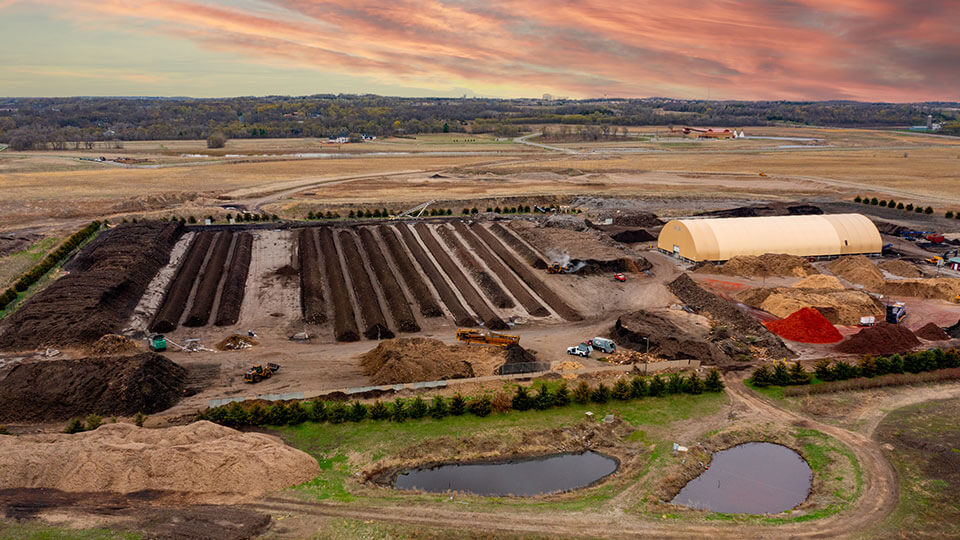
As the Dakota Prairie Composting site moves from blueprint to reality, it stands as a beacon of progress in the realm of sustainable organic waste management. Yet, beneath the surface of this venture lies a complex network of regulations and certifications that ensure the industry’s heartbeat aligns with the rhythm of environmental stewardship. In this deeper dive, we explore the intricacies of the regulatory landscape and the significance of certifications in guiding the large-scale composting industry toward a greener future.
The Regulatory Framework: A Closer Look
The U.S. Environmental Protection Agency (EPA) serves as the federal regulatory body overseeing composting operations across the nation. However, they have very few regulations enforced nationwide and instead defer most regulation to the individual states. States across the U.S. regulate composting in various ways through various agencies. For example, the Minnesota Pollution Control Agency (MPCA) regulates composting facilities in Minnesota, while the Wisconsin DNR regulates composting in Wisconsin. States may have their own regulations, often building upon EPA standards to address local environmental concerns. For example, California’s CalRecycle oversees organic waste recycling and composting operations, implementing stringent requirements to reduce greenhouse gas emissions. In Minnesota, the MPCA has written final product specifications of the highest levels of quality to restore the soil and land for generations to come.
Beyond governmental regulations, several certifications exist within the composting industry, serving as markers of quality, environmental responsibility, and adherence to best management practices. The U.S. Composting Council (USCC) offers the Seal of Testing Assurance (STA) Program, which is a testing and information disclosure program, aiming to standardize compost quality testing across the U.S. This program requires frequent testing of saleable compost including testing for contaminants and ensuring the compost meets specific maturity and stability criteria. Facilities achieving STA certification demonstrate their commitment to producing high-quality compost that is safe and beneficial for consumer use.
Innovations and Adaptations: Meeting Regulations Through Technology
Advancements in composting technology not only enhance efficiency but also help facilities meet and exceed regulatory requirements. Aerated static pile (ASP) composting, for instance, minimizes the release of volatile organic compounds (VOCs) and odors, a concern for both environmental regulators and the communities hosting composting operations. The integration of composting software for data management and regulatory reporting is becoming increasingly common, enabling facilities to maintain transparent and compliant operations.
The Role of State and Local Regulations
It’s crucial to recognize the role of state and local regulations in shaping the operational landscape of composting facilities. State environmental agencies often require permits for composting operations, focusing on aspects such as site location, design, operational practices, and environmental monitoring. Local ordinances may also impact facility operations, addressing issues like zoning, noise, and traffic. Facilities must navigate this multilayered regulatory environment, staying abreast of changes and actively engaging with regulatory bodies to ensure compliance and foster positive community relations.
Looking Forward
As we anticipate the opening of the Dakota Prairie Composting site, it’s clear that navigating the regulations and certifications is not merely about compliance, it’s about embodying the ethos of sustainability that drives the industry forward. By understanding and embracing these requirements, composting facilities can lead by example, demonstrating how environmental stewardship and operational excellence can go hand in hand. The future of large-scale composting is not just about transforming organic waste into valuable resources, it’s also about contributing to a cycle that benefits the earth, communities, and future generations.
The critical role of regulations and certifications ensures the large-scale composting industry operates within a framework that prioritizes environmental protection, public health, and viable practices. As facilities like Dakota Prairie Composting rise to meet these standards, we pave the way for a future where composting plays a central role in our collective journey toward sustainability.
Sources: U.S. Environmental Protection Agency; CalRecycle; MnDOT; U.S. Composting Council; National Conference of State Legislatures


